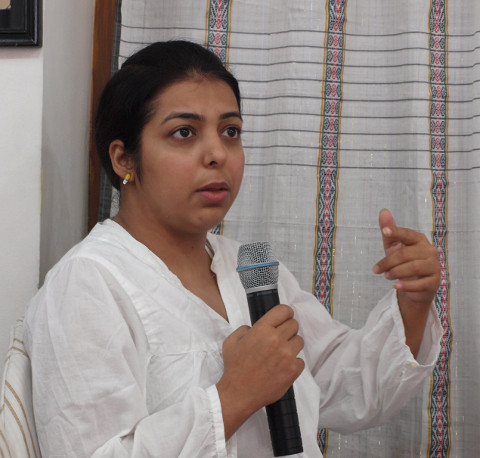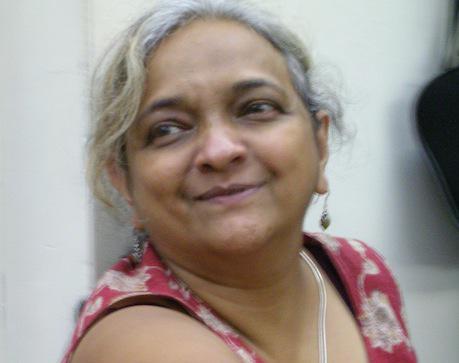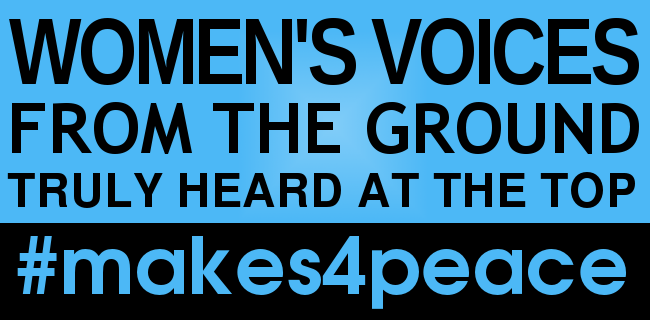- Details
by Claudia C. Lodia
Central to the underlying spirit of building sustainable peace is the realization that visions of peace are rooted in specific contexts. This particular understanding has been deployed as a dominant strand within the developing discourse on Women, Peace, and Security (WPS) in the Global South. With the passing of UN Security Council Resolution 1325 on October 31, 2000 − a resolution pushed for by feminist antimilitarists and non-governmental organizations (NGOs) cross-nationally, in order to formalize the mainstreaming of gender in peace and conflict operations − what has emerged and continues to take shape is the challenge of its implementation and translation.
- Details
by Juliana Cano Nieto
On September 10, 2014, the government of the Philippines and the separatist Moro Islamic Liberation Front (MILF) presented before Congress the Draft Bangsamoro Basic Law (BBL). This 119-page document sets the legal basis for the political and financial autonomy of the Muslim region in the southern island of Mindanao. Will this law and what will follow be sufficient to achieve the sustainable peace people in this region aspire to?
Read more: Is the Bangsamoro Law a Sure Step Towards Peace in the Philippines?
- Details

When the situation in Amna's province, Khyber Pakhtunkhwa, worsened as a result of the global "War on Terror", she moved to Islamabad for work and became involved in peacebuilding and conflict resolution. Now 30, she has returned to become the Coordinator of the Provincial Commission on the Status of Women, focusing her work on women in conflict and crisis.
- Details
by Marilee Karl
Feminist Activist, Women’s Rights and Human Rights Activist, Peace Builder

Is it really a whole year since we lost Sunila Abeysekera? She remains such a strong presence in the global feminist movements, a shining light and inspiration for all of us. Feminist activist, women’s rights and human rights activist, peace builder since the early 1970s, she is remembered and celebrated by countless people whose lives she touched.
Sunila was awarded the UN Human Rights Prize in 1998 for her tireless defence of human rights and for her peace-building efforts in her home country of Sri Lanka. Her much deserved international acclaim did not keep Sunila from continuing her activism in grassroots feminist initiatives. Sunila was first and foremost a feminist activist, an organizer and a catalyst in local, national, regional and global feminist and other social movements.
From the very beginning of her activism, Sunila was aware or the importance of information and communication in empowering women. She was a founding member of the Women and Media Collective in Colombo, Sri Lanka and founder of INFORM Human Rights Documentation Centre.
The story of Sunila’s early activism and emergence as a feminist is a part of the legacy she left to all of us. It also makes for fascinating reading: In “We were Feminist First” Kumudini Samuel writes about “Sunila’s contribution to catalyzing the activism of the nascent feminist/women’s movement of the early 1980s and the feminist theorizing she encouraged to underpin this activism.”
Sunila was a consummate networker. She brought feminist activists together. She participated in and contributed to so many women’s organisations. Isis International is one of them. She had a long and active association with Isis International and was a member of the Isis International Board of Trustees from 1998 – 2001. She was also a good friend, one of those with whom you could take up where you left off even after a long absence.
- Details

It's September, Peace Month is here!
Isis International supports women's participation in peacebuilding from the grassroots. We amplify women's voices through feminist communications and through our Activist School build the capacity of women working for peace.
Peace requires all our efforts. Isis belongs to international, regional and national networks working together for peace.
Check out Women Engaged in Action on 1325, and the Global Network for Women Peacebuilder's global campaign 'Women Speak Out for Peace'.
Continuing our efforts to advocate to engender peace follow our articles this month and take a look at our guide on Engendering Peace Journalism.
By Marilee Karl, Isis International
Greater recognition needs to be given to the unique contributions women can make to peace processes and to food security during times of conflict and as countries emerge from conflict.
Conflicts result in major upheaval, massive numbers of refugees and internally displaced persons, destruction of agriculture and livelihoods, a breakdown of food security and even starvation. In times of conflict, aid agencies have long since recognized the importance of ensuring that women are direct recipients of emergency food aid. Women have been found to be key to ensuring that food reaches the most vulnerable members of their communities. This recognition has become enshrined in the policies of many relief agencies.
Read more: From the Ground Up: Food Security, Women, Conflict and Peace





 The
The 
 Isis Resource Center holds one of the largest feminist collections of materials in the Global South. With 40 years of publication experience, Isis holds a vast collection.
Isis Resource Center holds one of the largest feminist collections of materials in the Global South. With 40 years of publication experience, Isis holds a vast collection.